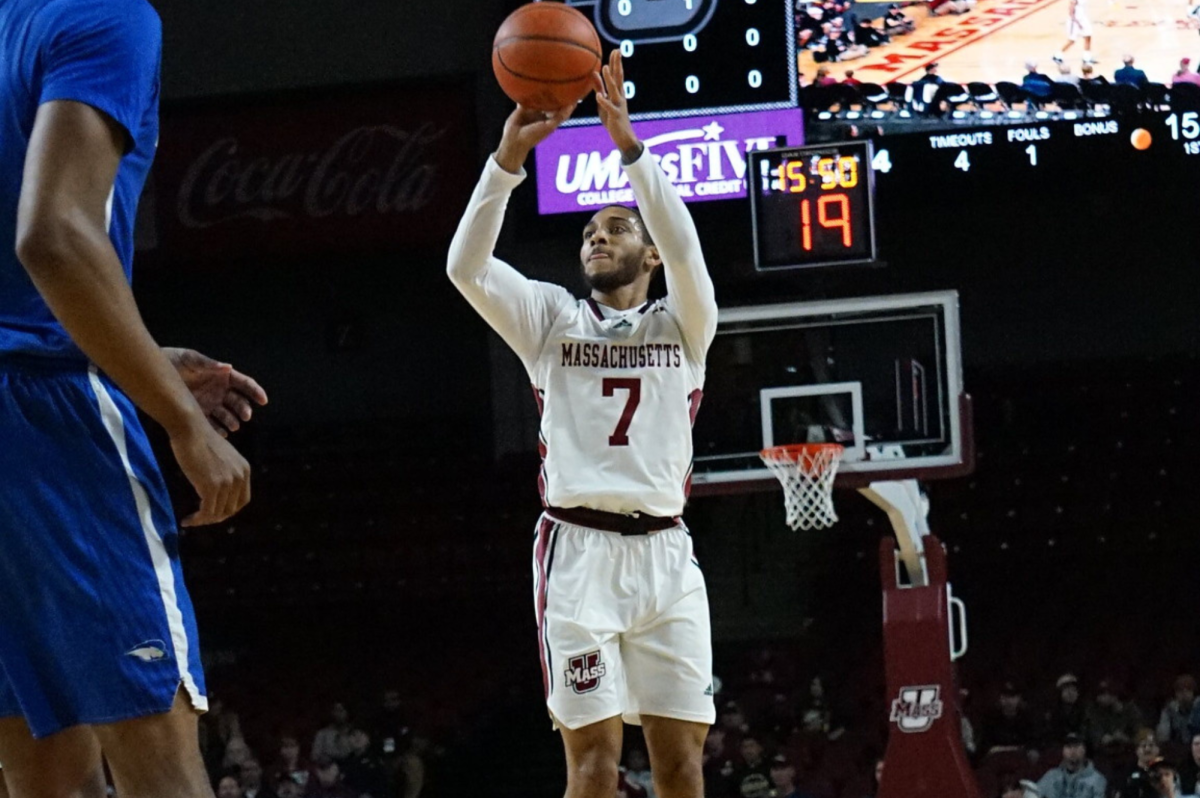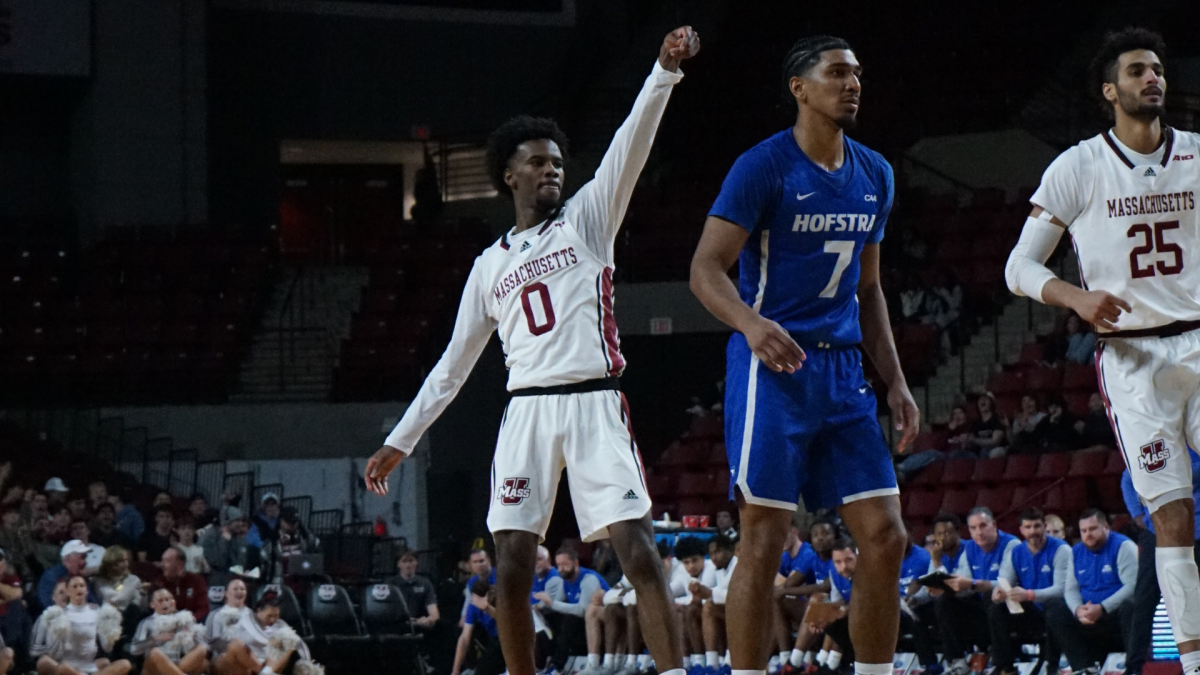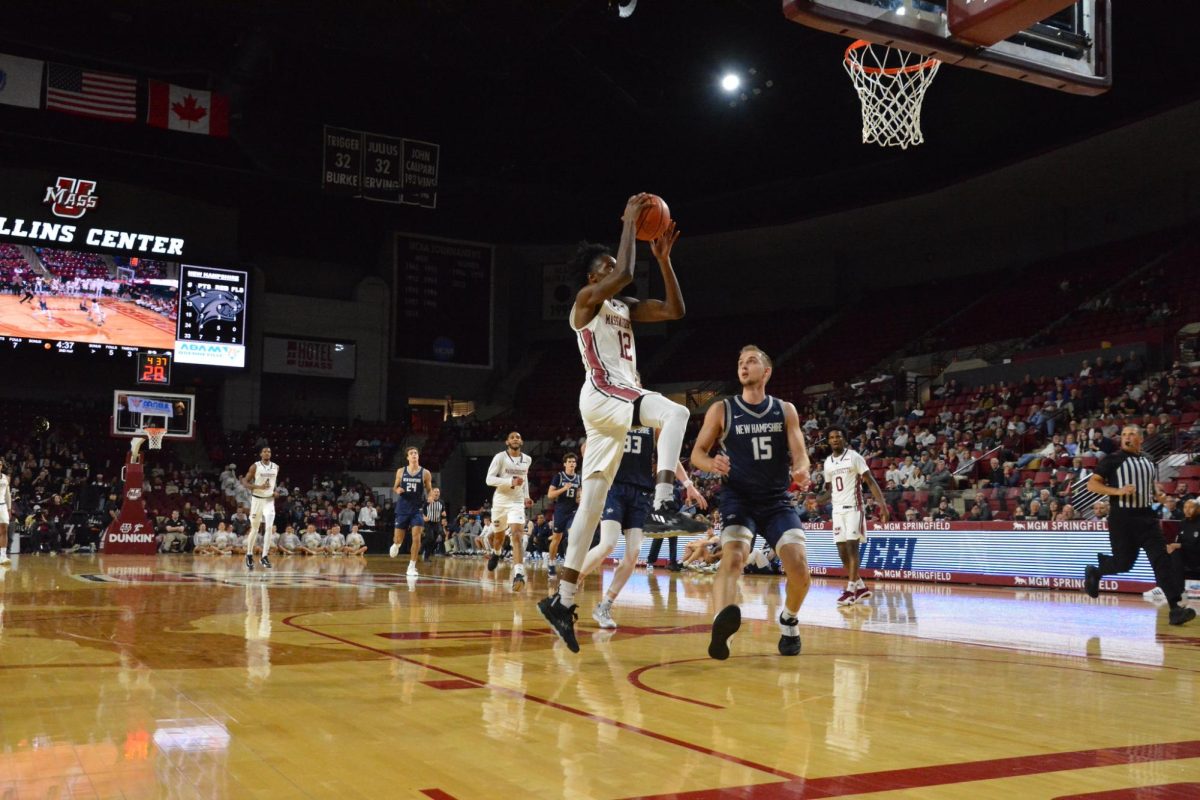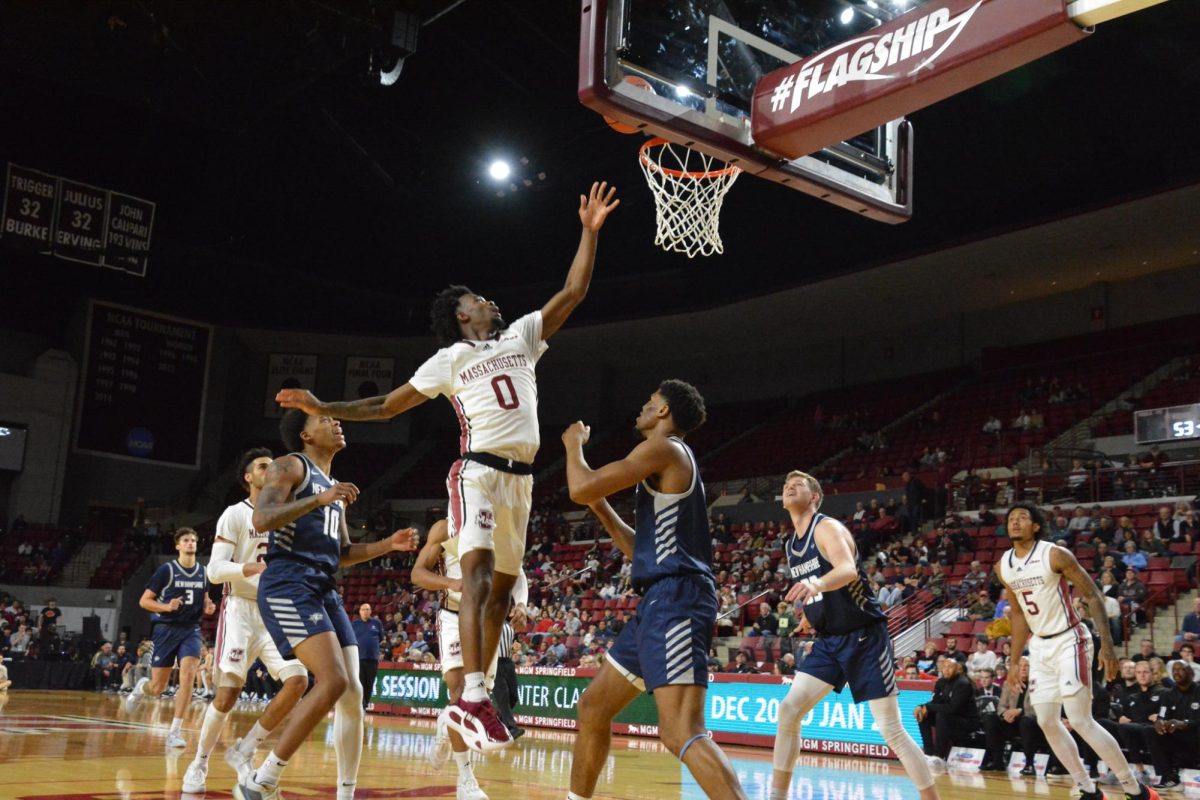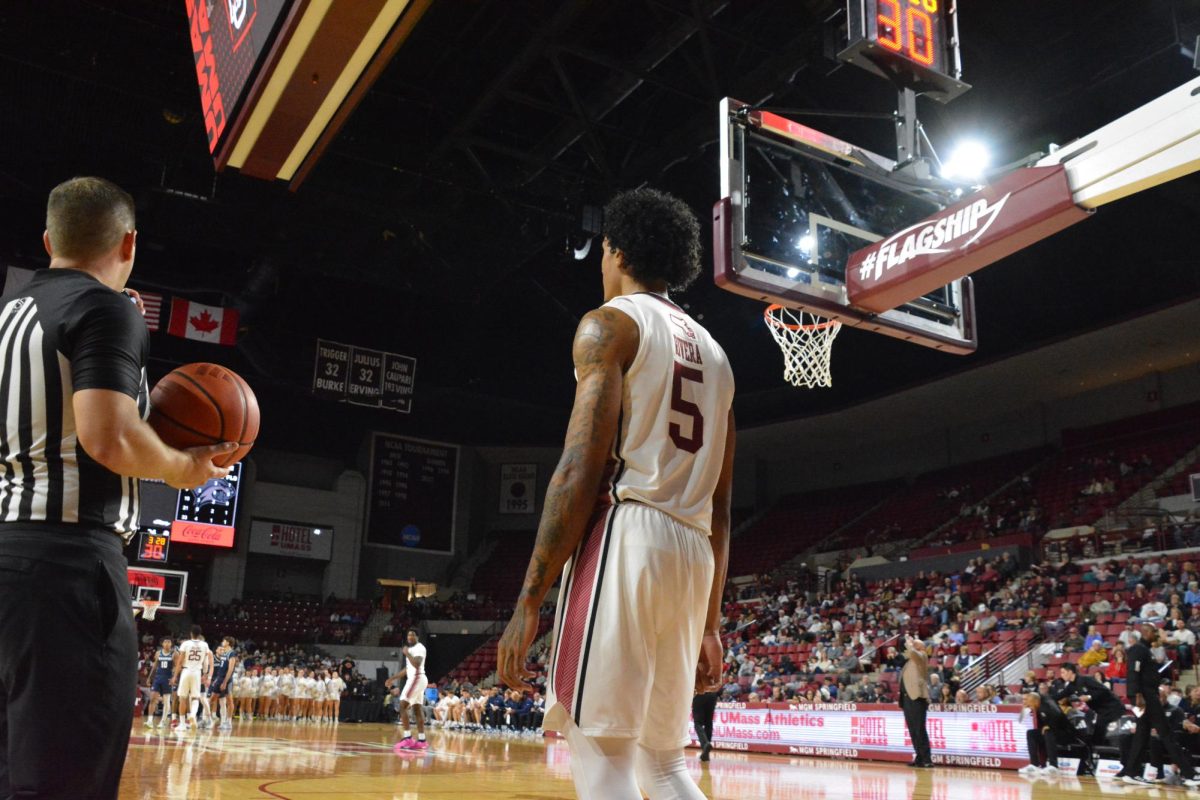Now in the third year of the Derek Kellogg regime, the Massachusetts men’s basketball team is headed in a direction that didn’t seem plausible the last two seasons: on the rise.
After taking over the remains of former coach Travis Ford’s team in 2008, Kellogg has shaped much of the current roster with his own recruits and young talent, along with a mix of veteran leadership.
Last year, he brought in five exciting freshmen in Sampson Carter, Terrell Vinson, Javorn Farrell, Raphiael Putney and Freddie Riley. Those players now have a season under their belts and are more adjusted to the collegiate playing style.
“This is really the first year it’s in place; we don’t have to re-teach everything from day one,” Kellogg said. “Now, you’ll see, things are going to start moving in the right direction and really waiting in the wings pretty soon here.”
While the Minutemen are growing, they aren’t the only ones. Kellogg, despite playing at UMass in his days as a student, hasn’t been in the program for the longest time either. Entering his third year though, Kellogg feels he’s in a better position to succeed.
“I’m feeling a lot more comfortable with a lot of things,” Kellogg said. “My staff has a very good indication right now of what’s expected out of them and what I need as a head coach.”
Coaching his alma mater, however, hasn’t been all-fun at times. In his two years at UMass, the Minutemen have had their share of struggles.
In his inaugural season in 2008-09 with former standouts Tony Gaffney and Chris Lowe, Kellogg coached the team to a 12-18 overall record and a 7-9 Atlantic 10 record. It was a challenge in a rollercoaster year which saw both a six-game losing streak and five consecutive wins come in the first two months. Despite defeating Rhode Island in the final game of the season on a last-second drive by Lowe, the Minutemen could not sustain the momentum, and lost their first round matchup in the conference tournament to Duquesne.
UMass made it one step further last year, earning a win over Charlotte in the first round before losing by five points to Richmond, which earned a berth in the NCAA tournament. Nevertheless, it was largely a rebuilding season for the Minutemen, as they acclimated to a new class of freshmen, leading to a stretch where they dropped 14-of-18 games and had a 20-loss campaign for the first time since 1983.
“I get frustrated quite frequently,” Kellogg said of his team’s inexperience. “But at the same token, these are the kids I want to go to battle with. I really wouldn’t trade them for, well, it would be nice to have always one more guy, but I wouldn’t trade the guys that I have for any team in the country because of the types of kids that they are.”
The biggest question heading into the year for UMass is how the offensive production lost in the departure of former guard Ricky Harris will be replaced.
Harris, who graduated following last season, is third all-time in scoring for the Minutemen with 1,960 points, putting him ahead of Marcus Camby (1,387) and Julius Erving (1,370).
With the Baltimore, Md. native gone, senior guard Anthony Gurley is the top returning scorer with 13.6 points per game. Along with Gurley and the developing sophomore class, UMass will look to rely on senior Gary Correia to provide stability at the point guard position.
Last season, Correia saw limited minutes, as he started only five of 32 games, playing behind Harris and now-transferred point guard David Gibbs.
Battling Correia for time this year will be freshman Daryl Traynham, who stands at all of 5-foot-9. Despite being seen as a future impact player, Traynham will try to bring to the floor scoring and pestering defense in his first year with the Minutemen.
The other freshmen include forward Maxie Esho and guard Jesse Morgan. Esho is an athletic wing player with a 6-foot-8, 200 pound frame, who earned a 90 grade by ESPNU recruiting. Morgan, meanwhile, won’t be eligible until the second semester after transferring in the winter of 2009-10 from Seton Hall, where he signed his national letter of intent but never played.
With a young roster, Kellogg knows there is a lot of excitement, as well as tempered expectations from fans.
“The expectation level varies from person to person, from restaurant to restaurant, from coffee shop to coffee shop,” Kellogg said. “But I have a realistic view of where this program is, where it’s heading and where I want to see it be sustained for a long time.”
The expectations, however, are not high among Kellogg’s peers. As voted by the A-10 head coaches and selected members of the media, UMass is projected to finish 11th in the conference, only ahead of Saint Joseph’s, St. Bonaventure and Fordham.
Not only is the team drawing little attention, but individual players were nowhere to be found on the preseason accolades list.
“Nobody made the first, second or third-team all-conference, nobody made the All-Rookie team and nobody was picked the Coach of the Year,” Kellogg said.
“If you’re a competitor and a player and you’re nowhere to be found on the radar, that would make me want to prove to people that, ‘Listen, I’m in college basketball too, we have a team here in Amherst, we have a team here at UMass.’”
Standing in the way of the Minutemen is a strong A-10 conference, which consists of three-time defending champion Temple, as well as Xavier, Richmond, Dayton and URI. The Owls, Spiders and Musketeers earned bids to the big dance last season, while the Flyers and Rams were selected to the National Invitational Tournament.
“The league’s fantastic,” Kellogg said. “That’s been the toughest thing in trying to rebuild and get things going again, the league is so good.”
UMass opened up its season this past Friday at the Mullins Center against Rider. After struggling in the first half and falling behind 22 points, the Minutemen stormed back in the second half to win, 77-67. It was the largest comeback since the 2008 NIT Quarterfinals in a victory over Syracuse.
Jay Asser can be reached at [email protected].


